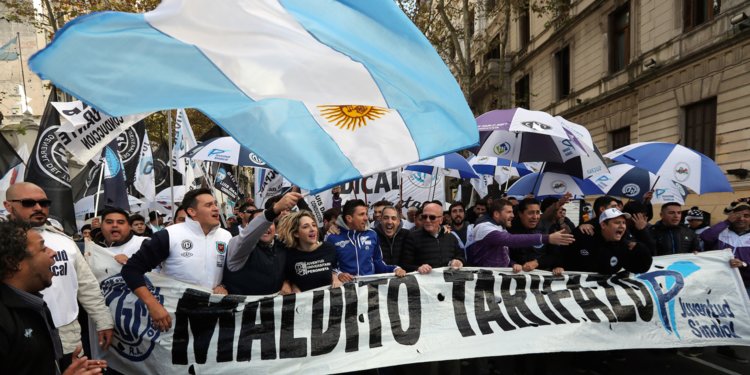IMF Increases Argentina’s Bailout
September 28, 2018 | Expert Insights

Argentina’s recent period of economic downturn prompted President Macri to ask the IMF to speed up its bailout package. The IMF has now agreed and increased the bailout to $57 million, the largest it has ever given.
Background
Argentina is the eight largest country in the world and covers most of the southern portion of South America. Following three centuries of Spanish colonization, it declared independence in 1816. The 1970s ushered in a period of military dictatorship and repression during which thousands of presumed dissidents ‘disappeared’ or were murdered. Defeat by the British in the Falklands Islands War of 1982 led to the fall of the military regime and the re-establishment of democratic rule, which has endured despite various economic hardships.
Elected in 2015, President Mauricio Macri took steps to liberalize the Argentine economy by lifting capital controls, floating the peso, removing export controls on some commodities, and cutting energy subsidies. In 2017, the Argentinian economy grew at 2.5%, and public debt was approximately 54% of GDP.
However, with the currency losing more than half its value this year, fund managers are cautious about additional exposure. Argentina’s underperforming bond market is largely attributed to the free-falling value of the peso. The Argentine national currency has suffered both from the ongoing trade war and uncontrolled public debt which has piled up over the last decade. The recent slump in the Argentinian economy has prompted the rise of interest rates, the fall in the peso and the acquisition of a $50 billion credit line from the IMF.
Read more of our Argentina coverage here and here.
Analysis
The IMF agreed to continue supporting Argentina by increasing the bailout from $50 billion to $57 billion. Christine Lagarde, managing director of the IMF, seems confident that this bailout package will be sufficient to get the Argentinian economy back on track. President Macri had previously requested that the IMF boost and accelerate their bailout package. With the new package, the upfront payment now increases by $19 billion.
The IMF was able to augment their initial package after the departure of the country’s central bank governor, Luis Caputo, earlier this week. Caputo is supposed to have left over disagreements with the IMF regarding the extent of intervention possible by the central bank in the forex market. His departure caused the weakened peso to further depreciate. The new governor, Guido Sandleris, has agreed to take on a floating exchange rate regime. The IMF has stated that this will allow the central bank to intervene in case of high volatility in the exchange rate, but will refrain from intervention if the exchange rate stays within the range of 34 to 44 Argentinian pesos to a U.S. dollar. Argentina’s Congress still needs to approve this budget and the IMF has stated that it is imperative they do so. The new governor hopes that this strategy will allow the central bank to reduce inflation and stabilize prices, both of which will go a long way in the recovery of Argentina’s economy.
Under the agreement, Argentina will commit to reducing its fiscal and current account deficits and balance its budget by 2019. President Macri has already started to implement austerity measures to achieve this, including higher export taxes, lower electricity and gas subsidies, and the elimination of half the country’s ministries. However, the country’s citizens have not welcomed these austerity measures, and there have been protests and strikes.
Assessment
Our assessment is that the IMF’s augmented bailout package puts more pressure on President Macri’s strategy for economic recovery. We feel that any failure due to this bailout will result in losses at Argentina’s upcoming elections. Given the confidence that both the IMF and President Macri have in this plan, we feel that it has a strong chance of improving the economy, providing it can gain the support of hostile citizens. We feel that their reiterations to support the economically vulnerable with the bailout money may increase the possibility of gaining support from the people.








Comments